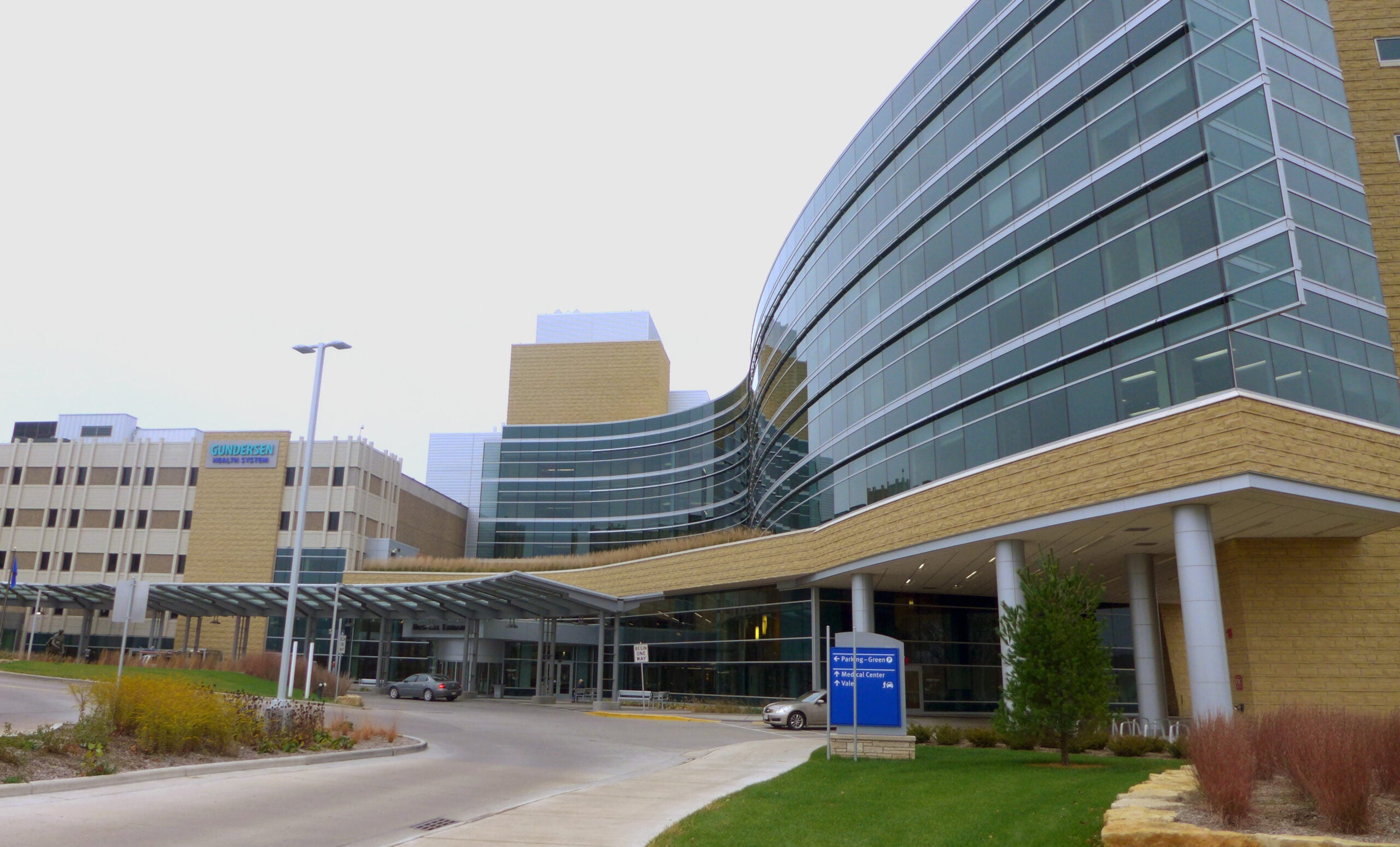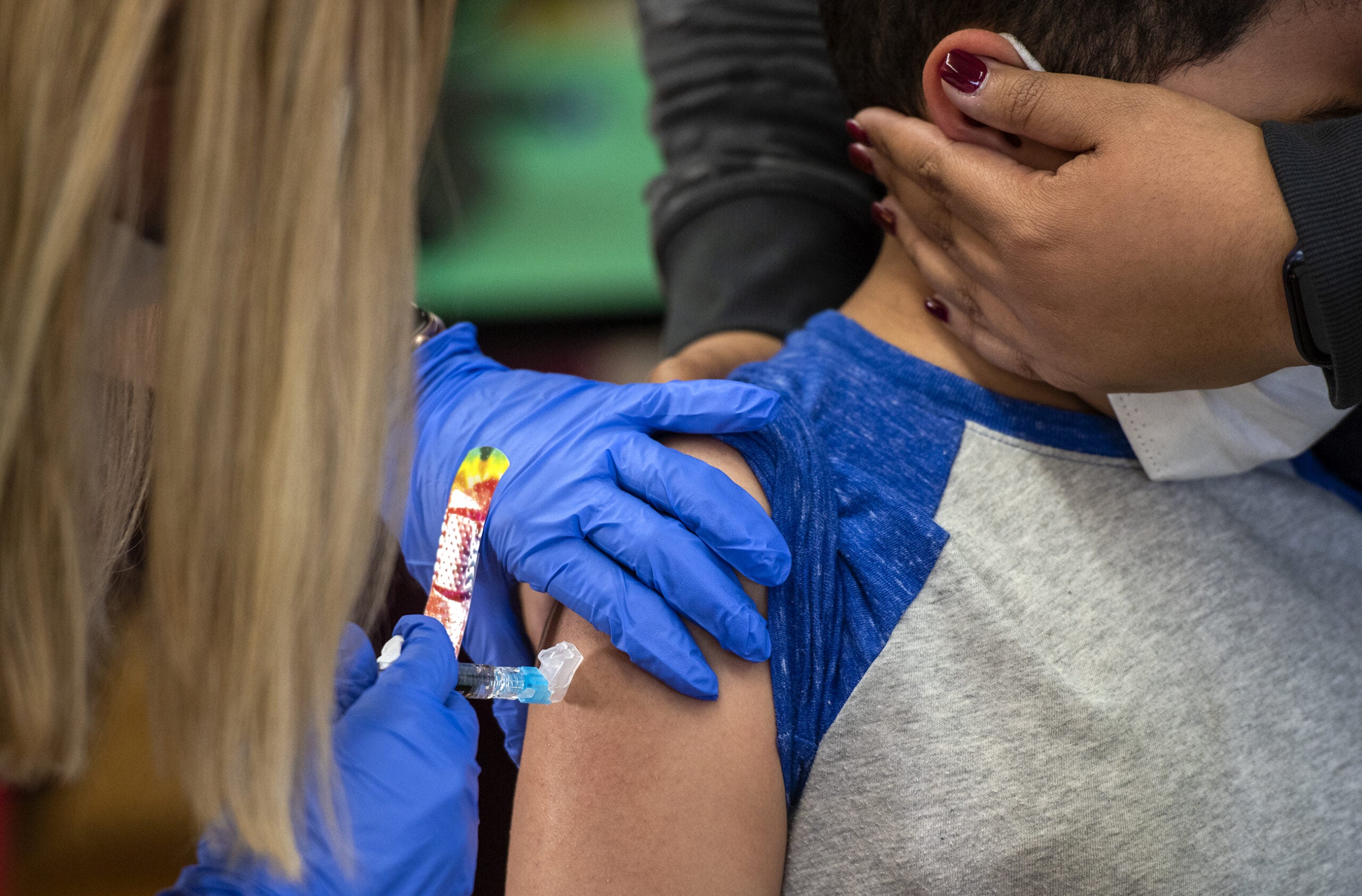Major health care systems in Wisconsin are moving to reopen COVID-19 units as the number of virus-related hospitalizations in the state continues to rise.
Gundersen Health System announced Monday that it would reopen its COVID-19 unit in La Crosse after closing it in April.
Bridget Pfaff, Gundersen’s clinical operations director for infection control, said the hospital is already seeing a spike in COVID-19 hospitalizations.
News with a little more humanity
WPR’s “Wisconsin Today” newsletter keeps you connected to the state you love without feeling overwhelmed. No paywall. No agenda. No corporate filter.
“A couple of weeks ago, we had one to two patients. A week ago, five to six (patients), and really we’re up to 15 to 16 patients now,” Pfaff said. “The trend is certainly going in the wrong direction for what we would anticipate seeing. We certainly have seen a lot of people getting vaccine in our community, but seeing a lot more patients who are ill with COVID and sick enough to be presenting for health care.”
As of Wednesday, the state Department of Health Services reported the state had seen an average of 263 hospitalized COVID-19 patients over the previous week. The north central, south central and southeast regions of the state were seeing a growing trajectory of hospitalizations.
Pfaff said the return of local events this summer has created more opportunities for the virus to spread, especially considering the lower-than-ideal vaccination rate in Wisconsin and across the country.
But she said vaccine demand has been increasing in recent weeks as the delta variant continues to spread.
“I think we’ve been seeing a lot of testimonials of people who have had that experience of ‘I had the opportunity to get the vaccine, I didn’t and now I’m gravely ill with COVID in the hospital.’ And maybe some of those stories are helping to prompt people to get out and get vaccinated now,” Pfaff said.
Tammy Simon from Marshfield Clinic Health System in central and western Wisconsin said it’s also seen an increase in vaccine demand at their locations. She said the system’s most recent vaccine order was four times larger than the previous week.
“That is reassuring that our communities are taking this more seriously. They’re seeing how this is affecting people around them,” Simons said. “We are unfortunately hearing personal stories of people we know where they have loved ones that have died due to COVID and just truly how contagious and how deadly this COVID variant is.”
Like Gundersen, Simon said Marshfield Clinic has seen a recent increase in COVID-19 patients, with 24 people currently hospitalized across the system. She said patients seem to be getting sicker more quickly and one of the most concerning trends is the increase in young patients without preexisting conditions.
“Last fall and into the winter, it was really those patients 65 and above that we saw more of. And now we’re seeing much younger, 30s, 40s and 50s,” Simon said.
Simon said Marshfield has also admitted pediatric COVID-19 patients, something they did not see in the first wave of the pandemic. She said that is affecting how they’re thinking about COVID-19 preparations and what staffing and equipment they will need if the current surge continues.
“What’s’ different today than when we did this previously is that at many of our ambulatory sites, we decreased or dialed down our services. And we’re not doing that today, so we need to balance staffing, space,” Simon said.
Dr. Aimee Becker, chief medical officer at UW Health in Madison, said her system has maintained a more flexible COVID-19 unit since last year, with the ability to scale up or scale back as needed.
“We’re kind of in the in-between,” Becker said. “We are again making some modifications to air handling, for example, in some spaces. But that is all a part of what we call our flexible progressive plan.”
Having been through the surges in COVID-19 cases seen in 2020, Becker said planning for a potential new surge in hospitalizations is in some ways easier now that hospital officials know the space and staffing needed to respond.
“I wouldn’t say that that planning is any different. We just feel, I think, a real urgency around working with all of our community partners around getting folks who are eligible for immunizations vaccinated,” Becker said.
She said officials are concerned about what the rising dominance of the more contagious delta variant will mean for the pandemic’s trajectory. But they’re also hopeful continued vaccinations and a return to practices like mask wearing can help stop a new surge.
Wisconsin Public Radio, © Copyright 2025, Board of Regents of the University of Wisconsin System and Wisconsin Educational Communications Board.






